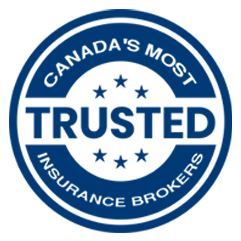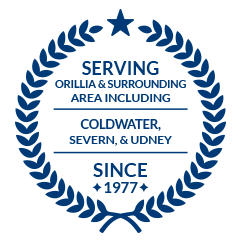How to Ensure Your Ontario Cottage Is Winter Ready
You may have spent the summer in your beautiful Ontario cottage, which means you could also have plans to escape the hustle and bustle of modern life by spending winter with your family in a quiet, relaxing atmosphere.
However, the fall season is coming to an end, and you must prepare your cottage for winter just as you would for your primary residence.
Getting cottage insurance for your home in Ontario is very important. At Ron Johnston Insurance, we make it our duty to give you the best insurance plans available to protect your property against risk, especially as winter approaches.
However, while insurance is necessary, there are other things you can do to protect your cottage from the hazards and harsh weather of winter. Keep reading as we will take you through the steps you should take to ensure that your cottage is ready for winter.
Steps to Ensure Your Cottage Is Ready for Winter
1. Prepare heat mechanisms
If you plan to close your cottage for the winter season or you only want to use it occasionally, you might be tempted to completely turn off the heat in your cottage to save money.
Turning off the heat, though, is usually not a good idea because your water pipes will likely freeze when you turn down the heat in your cottage.
If this happens, your home may suffer a burst pipe, leading to severe flooding damage. If you want to reduce costs, you can leave your heat anywhere from 5°C to 10°C, which should keep your pipes from freezing.
2. Lock your windows
Cottages are vulnerable to crime in the winter since most criminals are aware that their owners are unlikely to show up. The importance of ensuring all your windows and doors are closed cannot be overstated, even if you have a neighbour who keeps an eye on your property or a robust security system.
Ensure everything is locked, including your windows, shed, guesthouse, and garage, and keep any pricey equipment in secured structures.
It’s also important to take this action in order to satisfy the requirements of your cottage insurance company.
3. Clear the roof
You must ensure the roof drains are free of obstructions by carefully inspecting them. You can install a gutter, and maybe a gutter guard, and check to see if it’s obstructed because your house could get damaged when water seeps through the roof.
Water will be efficiently redirected and evacuated via a roof drainage system tailored to the style of the roof of your cottage (flat or sloped).
4. Clean your kitchen and fridge
Inspect your kitchen thoroughly and remove anything that can attract pests, such as small rats or bears.
It would help if you also cleared your freezer and refrigerator of bad foods, fruits, and drinks. In addition, open your refrigerator because a clean fridge will get musty and pungent if kept closed up all winter.
5. Shut off the water supply and drain the pipes
Turn off the main water supply to your cottage and drain the pipes. You should be aware that water left in the pipes during the winter may freeze, leading to a burst pipe and an expensive repair.
Cover the pipes in foam if your cottage lacks a reliable insulation source to keep them from freezing.
Also, even if your cottage is well-insulated, search for any potential cold spots, such as a garage or crawl room, and wrap any exposed pipes there.
6. Unplug all electrical appliances and devices
Even when an appliance or gadget is turned off, these electrical devices plugged into electrical circuits continue to draw energy from them.
They could thus cost you money if left plugged in during the entire season.
While you’re away, unplugging all large appliances will reduce the possibility of an electrical fire and lower your energy costs. You should also avoid completely cutting off the power to your cottage to avoid having your alarm system and outdoor lighting fail.
7. Ask a neighbour to routinely check your cottage
While you’re away, ask a trusted neighbour or a friend who lives in the area to check on your cottage on a regular basis. In the event of an emergency, make sure this person has your most recent contact information.
Additionally, if your cottage is insured, check your policy to determine how frequently the insurance company should inspect your property.
What You Should Know as a Cottage Owner in Ontario
Apart from heating your homes, clearing your roofs and pipes, and locking your windows, it’s always a good idea to add an extra layer of protection with cottage insurance.
Depending on your choice, this insurance may have the same policies as your primary residence. However, some insurance companies can only cover a cottage if they also cover the primary residence, while some can insure your cottage without necessarily covering your primary residence.
If you are still unsure and want to learn more about cottage insurance and how we can help you cover your homes, call Ron Johnston Insurance at (705) 325-6200 or contact us here.
- Tips for Securing Affordable Cottage Insurance Rates in Ontario
- Cottage Insurance Essentials: Coverage Options Explained
- Understanding Liability Limits in Commercial General Liability Insurance
- How Do I Calculate Business Liability Insurance Needs?
- Is Product Liability Insurance Included in General Liability?
- April 2024
- March 2024
- February 2024
- January 2024
- December 2023
- November 2023
- October 2023
- September 2023
- August 2023
- July 2023
- June 2023
- May 2023
- April 2023
- March 2023
- February 2023
- January 2023
- November 2022
- October 2022
- September 2022
- August 2022
- July 2022
- June 2022
- May 2022
- November 2021
- January 2018
- December 2017
- November 2017
- October 2017
- September 2017
- August 2017
- July 2017
- May 2017
- April 2017


